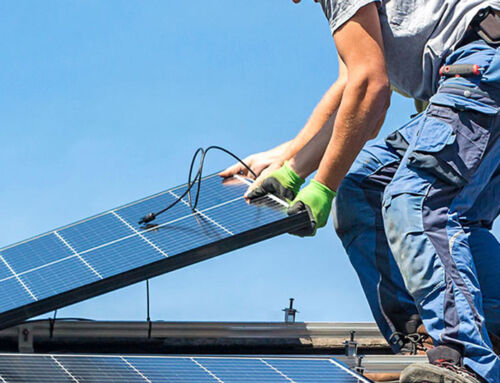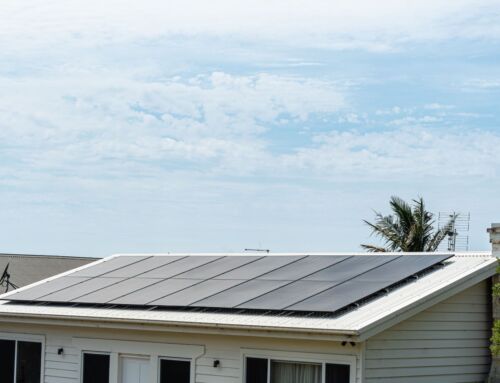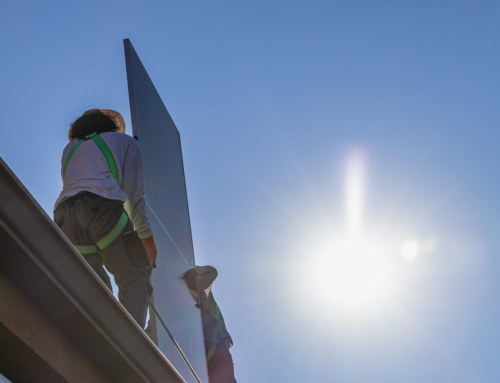Solar Battery vs. Whole Home Generator—Which Is Right for You?
If the power goes out in the middle of the summer in Arizona, you’re not just looking at a few mildly uncomfortable hours. You could be dealing with a serious safety issue, especially if you have young children or older adults living in your house.
Installing backup power can give you peace of mind. The right backup power system will keep essentials like your air conditioner and ceiling fans running, allowing you to stay safe and comfortable during a power outage.
There are two primary options for home backup power: a generator or battery storage.
In this guide, we break down the pros and cons of each to help you choose the best backup power system for your home in Arizona.
If the power goes out in the middle of the summer in Arizona, you’re not just looking at a few mildly uncomfortable hours. You could be dealing with a serious safety issue, especially if you have young children or older adults living in your house.
Installing backup power can give you peace of mind. The right backup power system will keep essentials like your air conditioner and ceiling fans running, allowing you to stay safe and comfortable during a power outage.
There are two primary options for home backup power: a generator or battery storage.
In this guide, we break down the pros and cons of each to help you choose the best backup power system for your home in Arizona.
What Is a Backup Generator & How Does It Work?
A backup generator, also called a standby generator, is a secondary power source for your home. It’s installed outside and connected directly to your electrical system and a fuel source like natural gas, propane, or diesel. When the power goes out, the generator detects the outage and starts up within seconds to keep key appliances and electronics running.
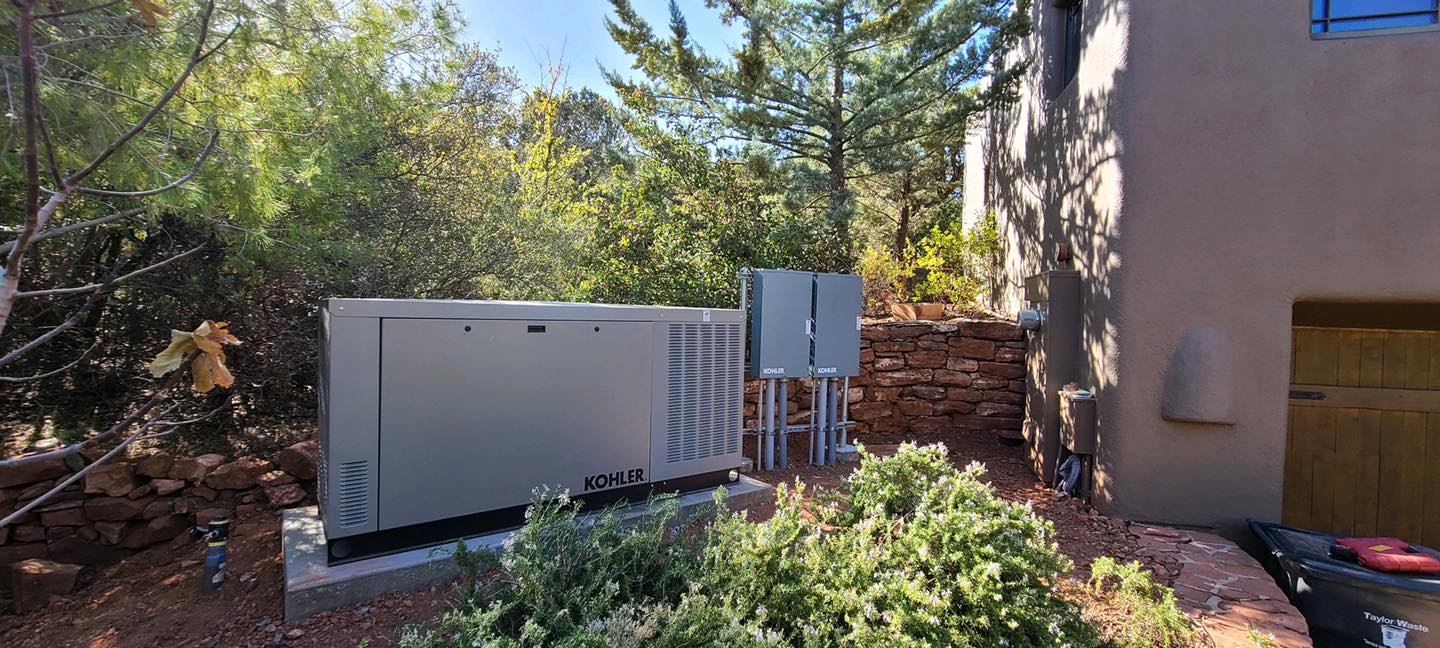
Benefits of a Backup Generator
- On-Demand Backup Power – Instantly restores power to your home during an outage.
- Long Run Time – Backup generators can run for weeks as long as they have enough fuel.
- Lower Installation Costs Compared to Other Options – Whole-home generators typically cost less to install than whole-home solar plus battery systems.
- Connects to Existing Gas Line – We can usually connect a generator to your existing gas line for easy setup and refueling.
Cons of Backup Generators
- Noise – Backup generators can be loud. If you’ve ever heard that low hum in a neighbor’s yard, you know what to expect.
- Ongoing Maintenance & Fuel Costs – Generators require maintenance and need to be refueled, which adds to your ongoing costs and can be a problem during a fuel shortage.
- Environmental Impact – Generators burn fossil fuels, which produce carbon emissions and contribute to air pollution.
What Is Solar Battery Backup & How Does it Work?
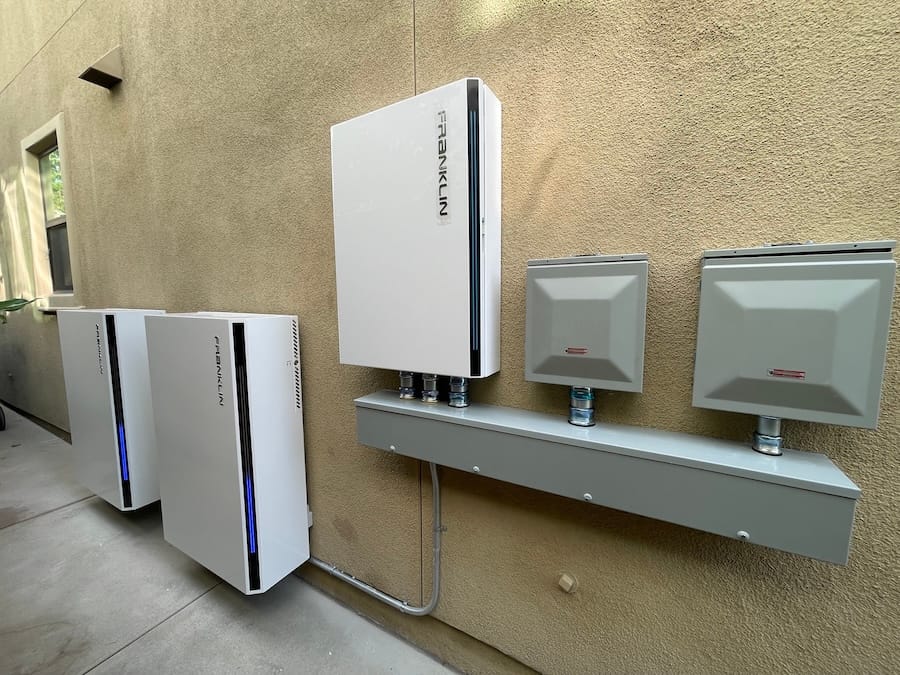
A battery backup system stores energy to be used later, like during a power outage.
Most homeowners pair a battery with solar panels to create a solar-plus-storage system. In this setup, your solar panels generate electricity during the day, and any excess power charges your battery. That stored energy can then be used whenever you need it, including during a power outage.
Batteries can also be installed without solar panels. In this case, the battery charges using power from the electric grid. You’ll have backup power during a grid outage, but you won’t be able to recharge the battery, so it will be limited.
Benefits of Solar Battery Backup
- Backup Power During Outages – Can backup essentials or your whole home during a power outage, depending on the system’s size and design.
- Recharges Automatically – If you install solar with battery backup, your solar panels will automatically recharge the battery anytime the sun is shining, so you don’t have to worry about or pay for fuel.
- Reduces Electricity Costs – You can use your battery during expensive time-of-use hours to save on electricity costs.
- Quiet & Low Maintenance – Unlike generators, batteries are silent and require almost no maintenance.
- Environmentally Friendly – When paired with solar panels, batteries allow you to use clean energy for backup power instead of fossil fuels.
Considerations & Potential Drawbacks
While solar battery backup offers many advantages, it’s not the perfect solution for every home:
- Limited Run Time – Solar batteries only store a limited amount of energy, and you will have to wait for the sun to rise to recharge.
- High Upfront Cost – If you’re installing solar panels with battery backup, it will likely cost more than a standby generator.
- Sizing Matters: To fully power your home during an outage, you will need multiple batteries, which increases costs. Many homeowners choose to back up only essential loads, like lights, refrigerators, and fans, which is a more cost-effective option.
How to Choose the Right Backup System for Your Home
The best backup power solution for your home depends on your priorities, budget, and how much backup power you actually need.
If whole-home backup is your top concern, especially for long outages, a backup generator may be the better option. Generators can run for weeks as long as they have fuel. Plus, it’s typically more affordable to get whole-home backup with a generator than it is with a battery system.
If you already have or plan to install solar panels or want a quieter, more environmentally friendly option, a solar battery backup system is worth considering. When paired with solar, it provides clean energy storage, long-term utility bill savings, and independence from the grid without the noise or emissions of a generator.
It’s also possible to install both. With a solar plus battery system and a backup generator, you’ll be fully protected during a long-term power outage. This is the most expensive option, but it’s also the most robust.
Learn More with a Free Consultation
There’s a lot to consider when comparing home battery backup vs a generator. At SouthFace Solar & Electric, we’ve been installing both since 2008 and can help you make an unbiased decision that makes sense for your home.
Schedule a free consultation today to learn more about your options and get personalized recommendations based on your home, priorities, and budget.

